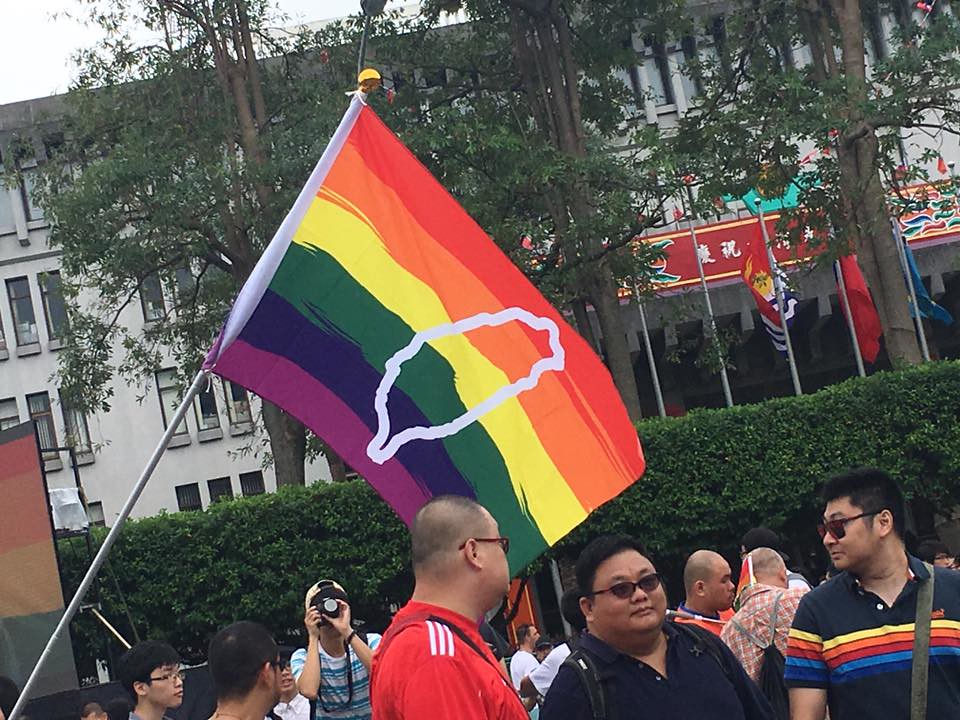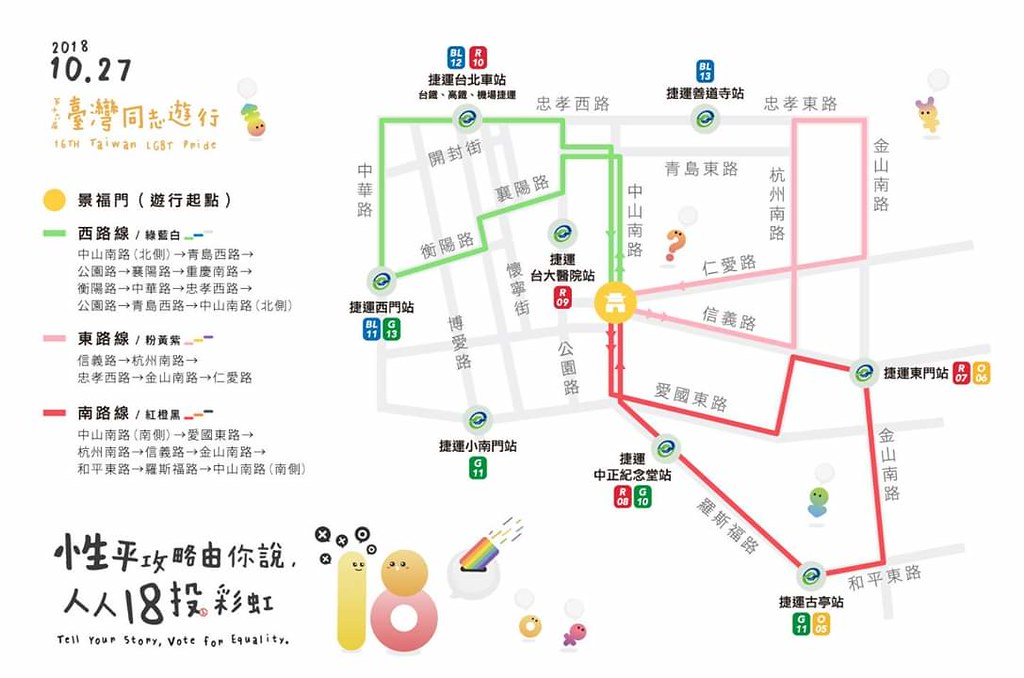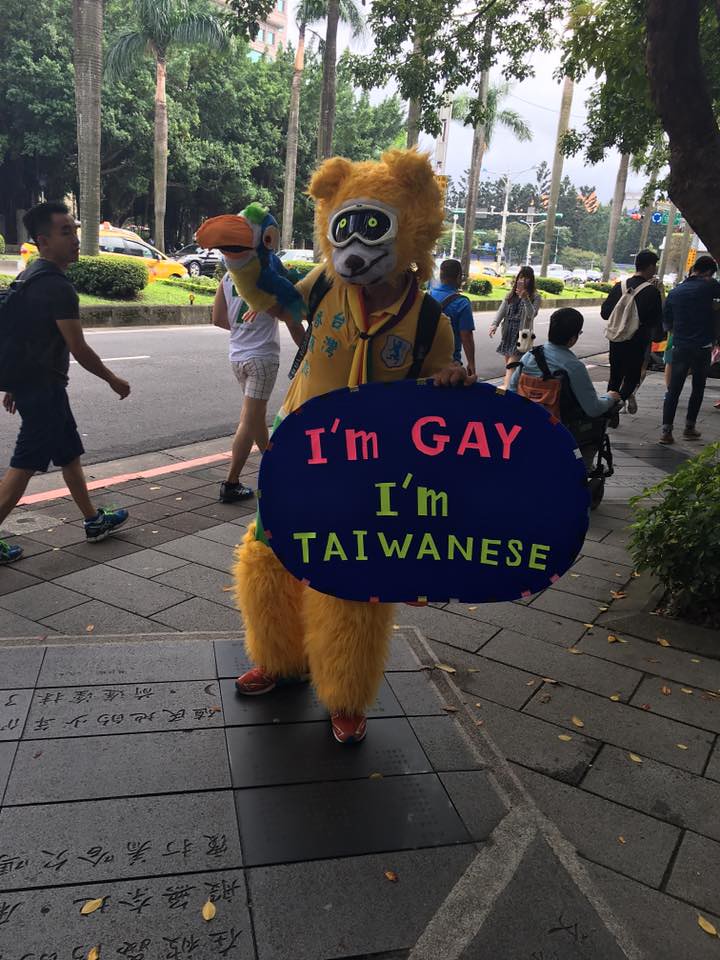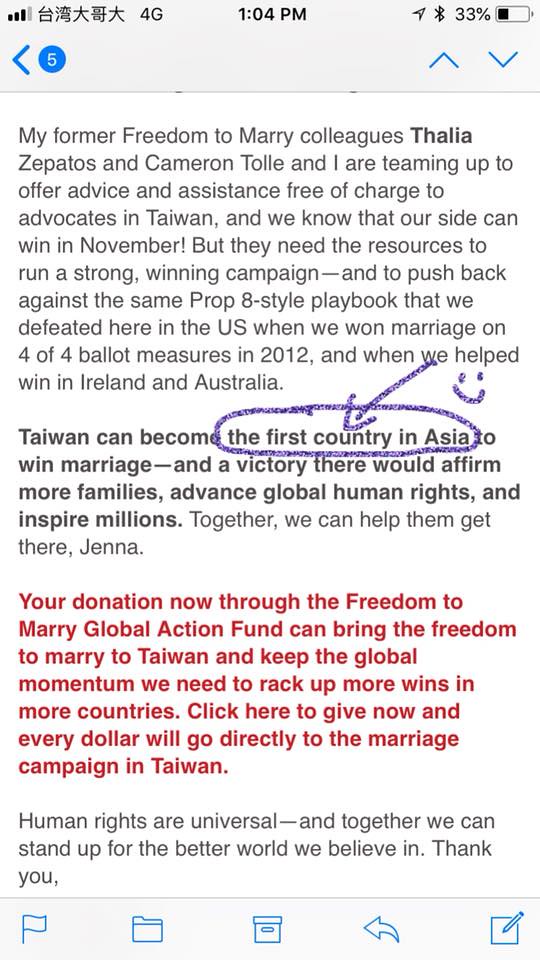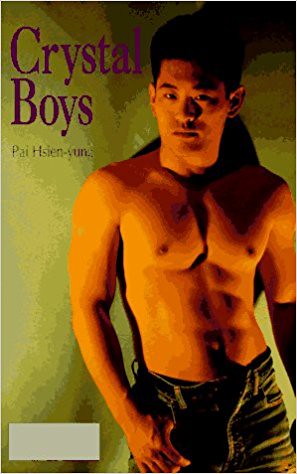 |
The gray square is covering the words "First modern Asian gay novel".
I don't know why the square is there. |
I continue to be vexed by Pai Hsien-yung.
Crystal Boys (孽子 or "Sinners" in Chinese), to be sure, was an easier read than
Wandering in a Garden, Waking from a Dream for someone who cares about Taiwan directly and viscerally, in ways that affect her life, and cares about China only in that fuzzy abstract way that one might be interested in foreign affairs. The sensitivity with which Pai writes about these characters is commendable - really the bottom rung of society, if not lower - mostly boys from families who were at the bottom to begin with, who have then been turned out by those families when their sexuality was discovered. Pai manages to both portray them sympathetically and not shy away from the daily indignities not only of their lives, but (in the case of protagonist A-Qing's family) the lives of the families who have kicked them out.
Other than police raids on "New Park" (now 228 Memorial Park) where the young, gay characters spent their nights, there is nothing overtly political in Crystal Boys, and what was there can be said to be more cultural than political. The protagonist characters were more sympathethic - although the Taipei that Pai describes is not the Taipei of today - the capital of the country on the cusp of being the first in Asia to legalize marriage equality - I can see its echoes in the Taiwan I know.
When I first moved to Taiwan over a decade ago, it was still common to use "228 Park" as shorthand for "hunting for gay hookups", with very little sympathy for those who may have gone there for that reason. I now recognize how homophobic such talk was, but I won't deny it was common (I haven't heard that particular reference in at least 5 years, however). The open-air gay bar culture around Ximen feels like an institution now, but it wasn't always there - I mean, Ximen's been a center of LGBT Taipei for some time, but I remember when it wasn't so out in the open. I don't know anyone who has been disowned or chased out of their home by their parents when their sexual orientation was discovered, but I do know people who have struggled when coming out to their families, or who still feel they cannot do so.
I just found myself feeling a bit put out that, with all the empathy Pai can convey when talking about the night kingdom of the 'glass community' (whose citizens were called 'glass boys' or 'crystal boys', hence the English title of the book), he doesn't seem to be able to extend this ability to write empathetically about Taiwan as Taiwan. All of the younger characters were born in Taiwan, but few of them had Taiwanese ancestral roots: to read this book, you would think that almost everyone in Taiwan who mattered either came from China or had parents who did. This...vexes me. Taiwan is more than the sum of people who came from China, but you wouldn't know that to read this otherwise exquisite book.
Pai focuses most of the story on the denizens of "New Park" - homeless or nearly-homeless men and boys who, while not the "hustlers" of Three Rivers Street (as Pai calls them), are essentially prostitutes. If one reads it without knowing Taipei or a sense of what it may be like to live as a gay man - and I specifically mean gay man because there are no Ls, Bs or Ts in this story, only Gs - one might get the impression that all gay men in Taipei are sex workers, which of course is not the case. A few of the characters are not sex workers, but they are involved in the sex trade, e.g. acting as patrons to the boys (or, to use baser term, as sugar daddies). Only through glimpses - cracks in the storyline really - do we see a Gay Taipei that is not centered on prostitution: the college students who timidly come to the park seeking their own, the patrons of the Cozy Nest bar. That's not a criticism of the book so much as a description, but there is a criticism to be made: I could well see someone recommending this book thinking it will open the mind of a potential ally who's on the fence, and having it backfire, because the reader finishes it with the (unfair and inaccurate) impression that "gay = prostitute". This isn't helped by the implication that all of the boys who are 'out', whether they want to be or not, are so because they were discovered
in flagrante delicto with another man - which probably is how most closeted gay men were discovered at that time, but still, upon reading
Crystal Boys, an unfair stereotype might be confirmed in the mind of the non-discerning reader that gay men are highly sexually promiscuous.
That said, there isn't as much of a plot, per se, as a typical Western reader might expect. It's more of a series of moody set-pieces in which the characters do move forward with their lives, but not a lot...happens really. Yes, (spoiler alerts) a bar gets opened, then closed. One characterachieves his dream of going to Japan. There's a penultimate reckoning between young gay man and stand-in father figure (not his actual father). There's a long-ago New Park love story that ended in tragedy which gets hashed out. But if you're looking for an action-packed storyline, you won't find it. Personally, I'm fine with the slower, more contemplative pace. I appreciated the deep exploration of the loyalties the Crystal Boys had to each other - they formed their own family and community among a society that had kicked them aside.
Otherwise, there are both personal and political threads running through
Crystal Boys - although I could find no direct reference to Pai himself being gay, it seems to be generally known that he is, and the scene where Wang Kuilong (the "Dragon Prince") has an angry - and yet sincere and caring - discussion with Papa Fu, retired ROC military officer and benefactor of the boys of New Park and whose own son committed suicide after his homosexuality was revealed - can't be read as anything other than Pai's literary rendering of a real or imagined confrontation with his own father, in which he attempts to see things from his father's perspective. Of course, the perspective can only be read with any degree of sympathy in its own era: the idea that there is any merit to feeling shame because you have a gay son only works if you buy into 'product of his time'-ism. Reading it now, it comes across as trying to defend or find sympathy for, say, a father who is so ashamed that he turns his son out on the street for the crime of being a bit short or maybe a redhead. Pai does explore the ways in which society is kinder to orphans and people born with disabilities or bodily deformities than to gay men, implying that it's unfair to feel charitably towards the former but not the latter, but never quite comes around to making it clear that sexuality is not something you choose.
Politically,
Crystal Boys has been read as an allegory of Taiwan as fatherless and adrift at sea - turned out by its father (China) and now skulking about in the twilight of international affairs - a 'sinner', 'monster' or 'bastard son' as the Chinese title implies. Even A-Qing's father comes into this: losing the war, leaving China, being kicked out of the military for having been taken prisoner, he sits in stasis in Taiwan, growing old and rotted: a similar metaphor for the ROC on Taiwan as was employed in
Wandering from a Garden, Waking from a Dream. Taiwan (the ROC to Pai) as a 'sinner' adrift in a world that's turned it out on the street is even more notable given that it was published in the early 1980s, when the sting of shifting recognition to the People's Republic of China was still biting. Before Taiwan woke up and realized it didn't actually want to be recognized as 'the true China', but rather simply for what it was: Taiwan.
Some try to find
both local (e.g. Taiwanese) and international (e.g. ROC vs. the world) strains of political ideas in it - I have to say, I don't really see that. I do see how Wang Kuilong's and Little Jade's different experiences abroad: one cynical and tragic, the other optimistic and bright, relates to the future (from the book's perspective) of gay life and LGBT activism in Taiwan, and how that was impacted by international cultural forces. However, I do see a surface-level exploration of Taiwan's cultural love affair with former colonial master Japan in Little Jade's quest to go there and find his birth father - Little Jade being the smooth-talking 'bastard' son of an overseas Chinese with a Japanese name, life and family. It's hard not to see colonial allegories in that sub-plot.
But Pai's exploration of this always turns its gaze back to China - Taiwan, the bastard son of China, an international pariah (another way one might translate 孽子). Never just Taiwan as Taiwan, its own mother and father, its own identity and its own family. The Crystal Boys form their own little kingdom and support each other just as the Chinese diaspora in Taiwan did (and does) - but this story of pain, shiftlessness and support is a metaphor with its sights locked firmly on China, not Taiwan.
So - I loved it, but reader, I am vexed.
